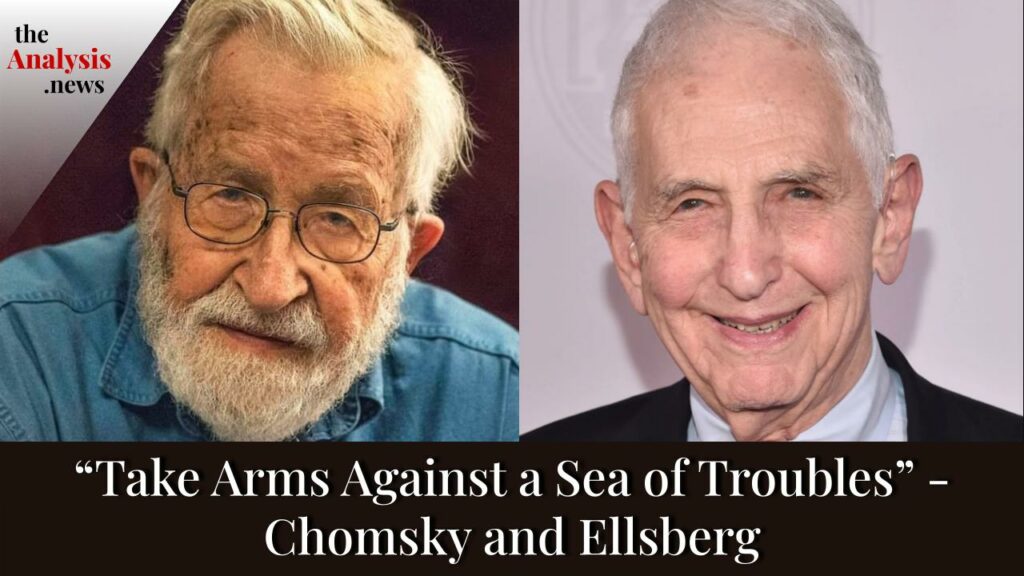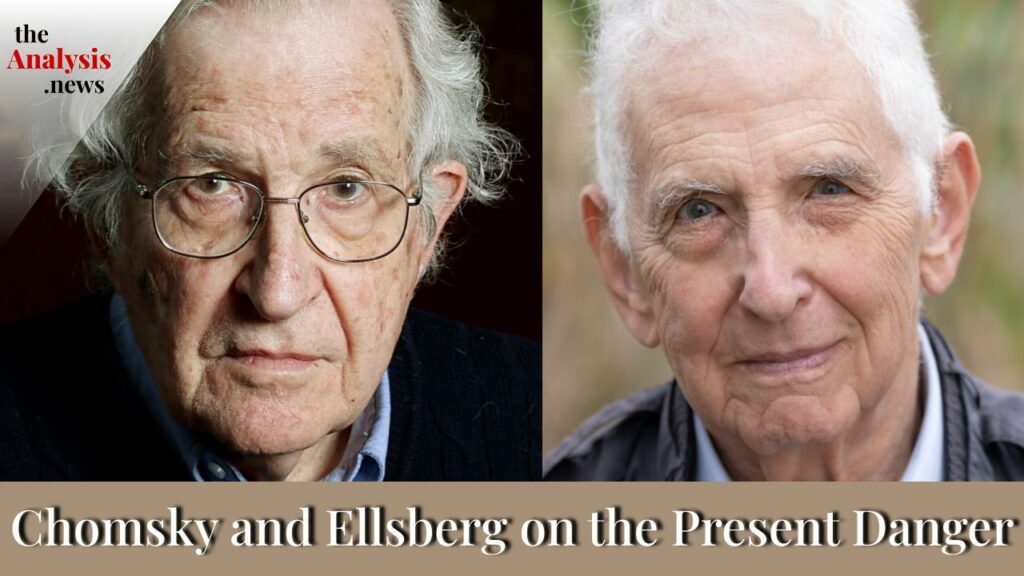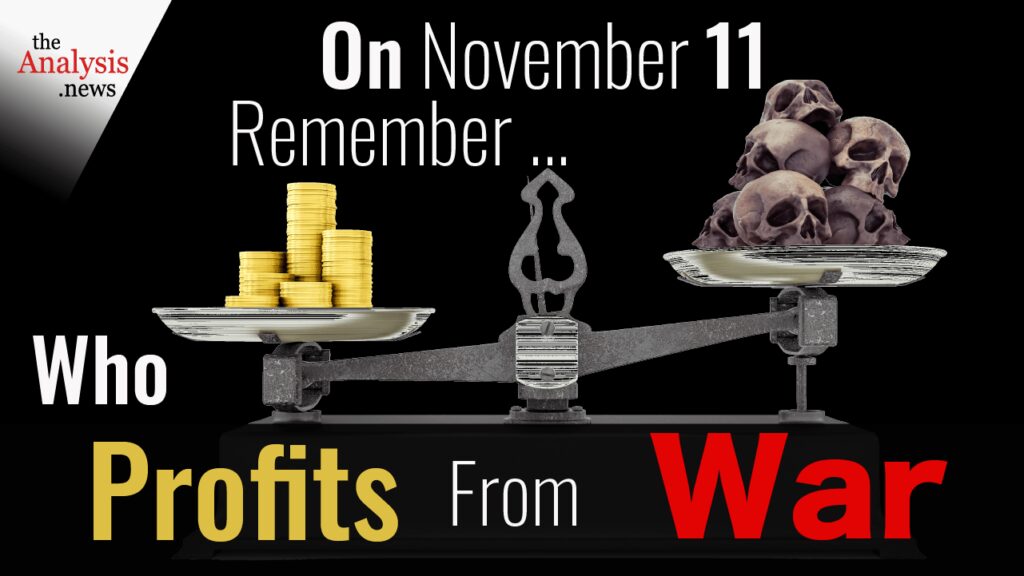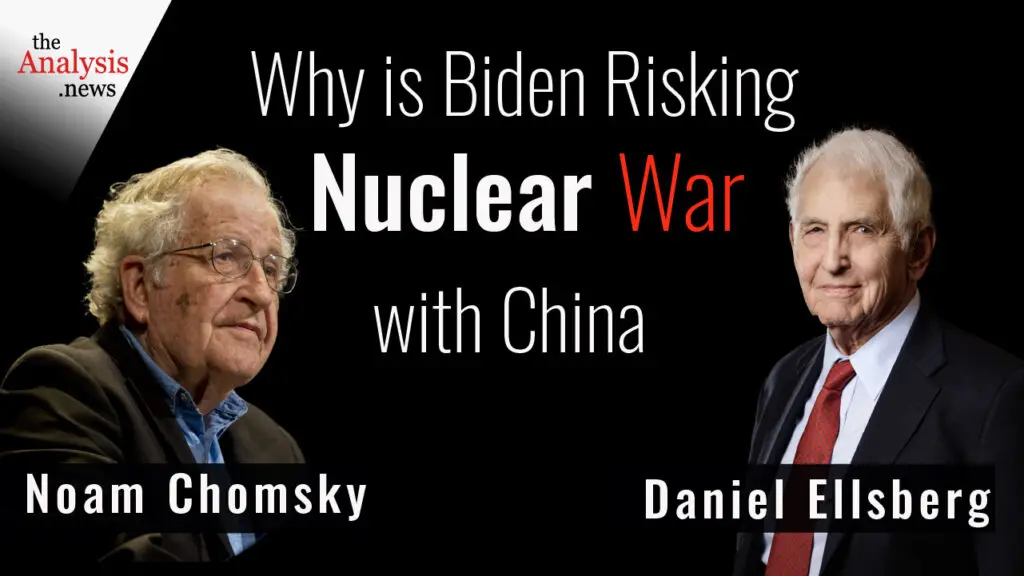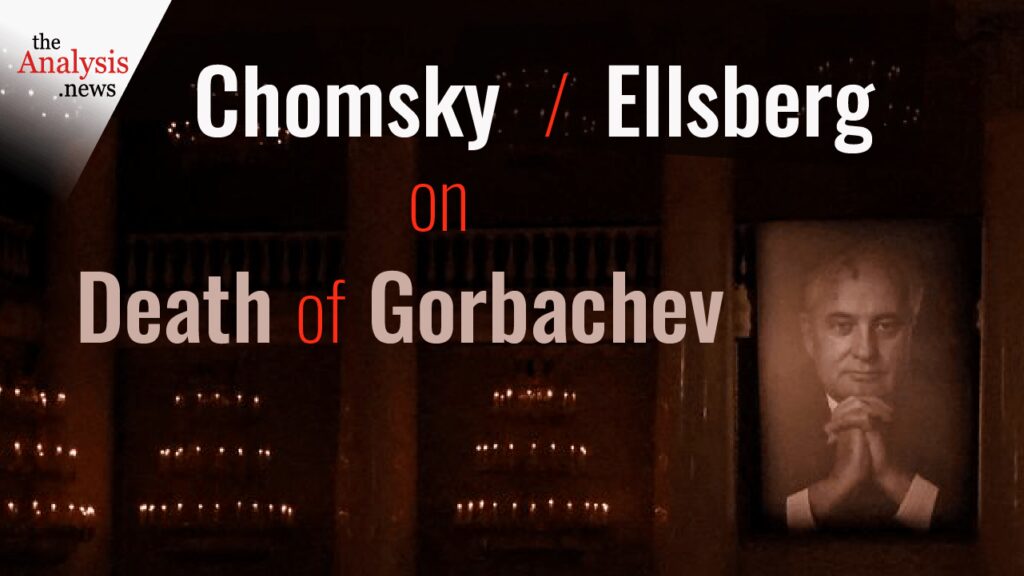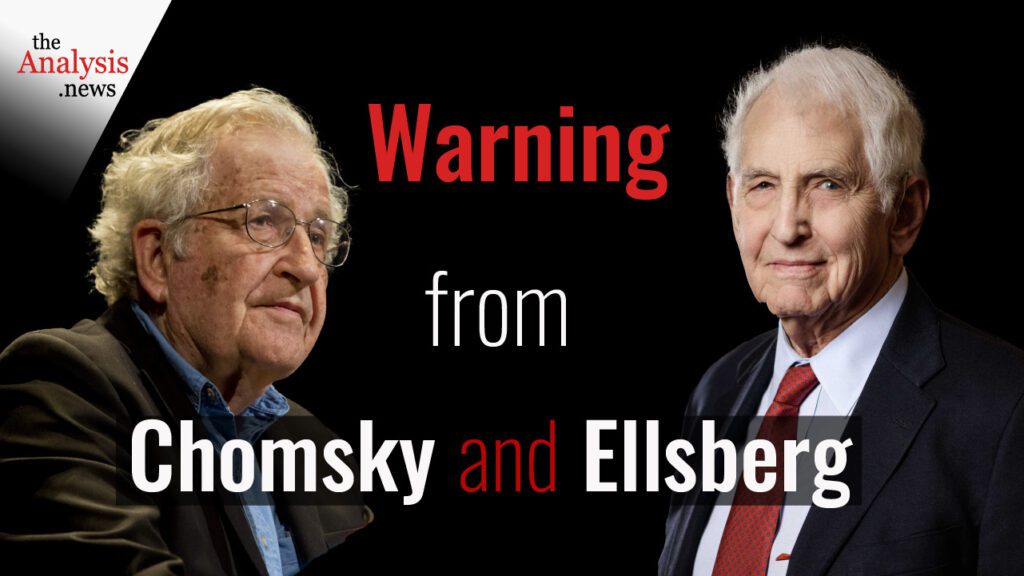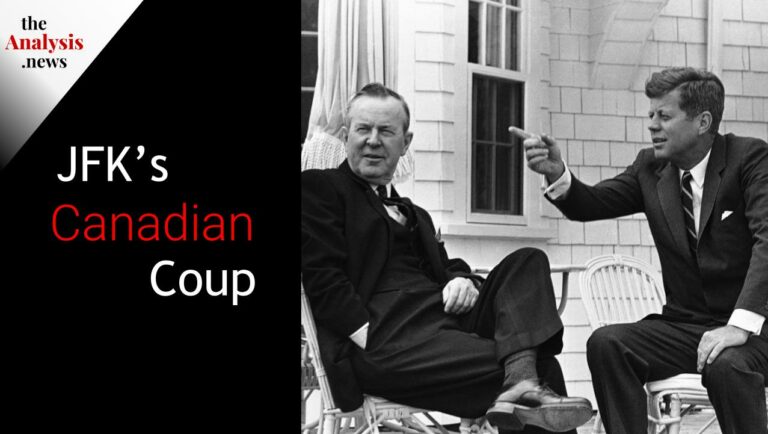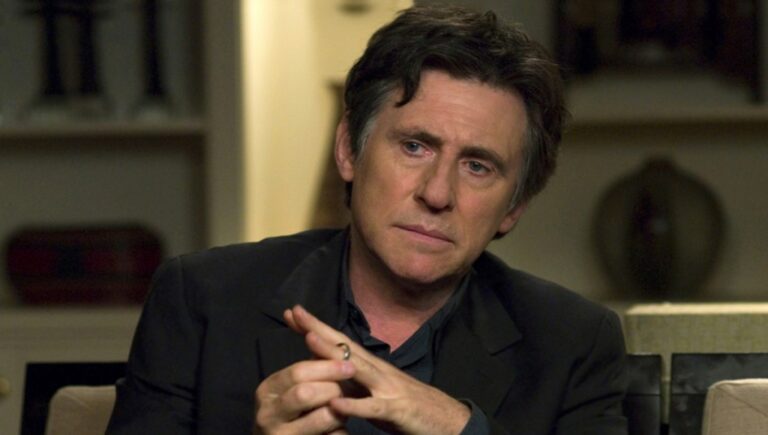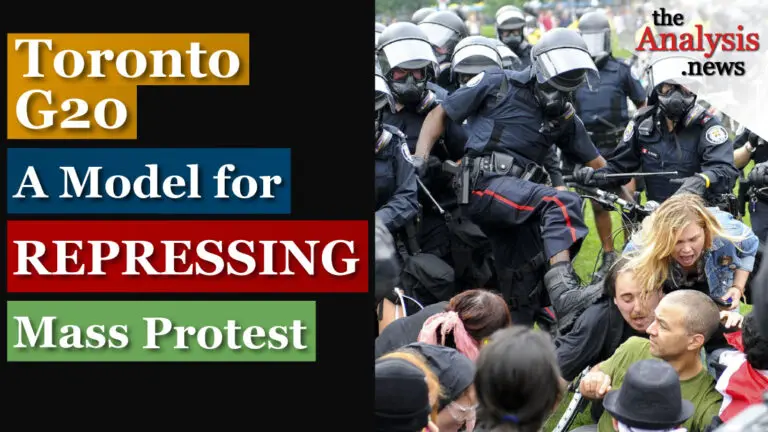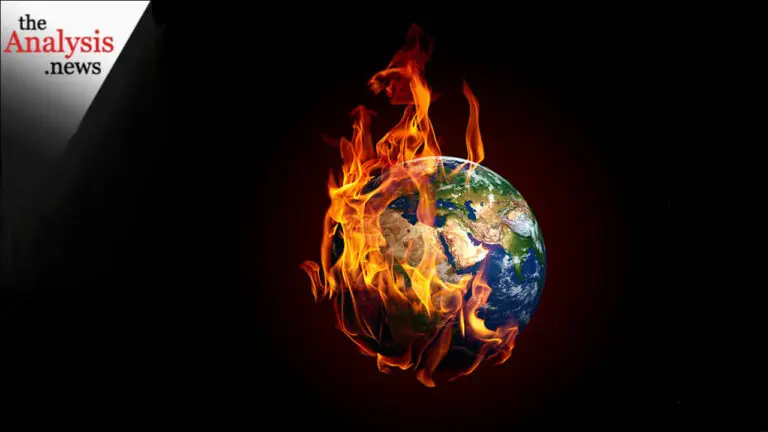Daniel Ellsberg, an extraordinary hero, passed away on Friday, June 16, 2023. Dan fearlessly risked everything in his unwavering quest for social justice and opposition to war. He was not only a cherished friend but also a guiding light for me and countless others. I feel honored to have had the opportunity to engage in extensive interviews with Dan while working on our film, “How to Stop a Nuclear War.” I will miss his wisdom and radiant smile, but his warning to the world will be delivered. Please click to watch our interview on the occasion of Dan’s 90th birthday and a collection of our interviews. – Paul Jay
To view more interviews with Daniel Ellsberg, click here.
This interview was originally published on April 7, 2021.
Paul Jay
Hi, I’m Paul Jay, and welcome to a very special edition of theAnalysis.news
on the occasion of the 90th birthday of Daniel Ellsberg.
Ninety years ago, Daniel Ellsberg was born, and he has lived a life of
meaning. Many of us strive to change the world, but few have the opportunity
and the courage to change the course of history. Dan’s release of the Pentagon
Papers at great personal risk helped end the Vietnam War. His book, The
Doomsday Machine Confessions of a Nuclear War Planner, reveals the
institutional madness of American nuclear war strategy. Dan continues to fight
for truth and to awaken people to the existential danger of nuclear weapons.
I interviewed Dan’s friend, historian Peter Kuznick, about the importance of
Dan’s life’s work. I encourage you to watch that.
But now, in his own words, is my interview with Daniel Ellsberg on the
occasion of his 90th birthday. So at 90 years old, why don’t you take it easy?
What keeps you fighting? How do you summon the strength when sometimes it seems
many are just not listening?
Daniel Ellsberg
Hope. Hope that we can surmount the challenges that are facing us, the
challenge of ceasing a moral catastrophe that we’re already involved in, which
is that we have allowed doomsday machines to exist in our country and elsewhere
in the world and that we’re on a course toward climate catastrophe as well. The
problem is to avert the physical catastrophes, not full extinction in either
case, but catastrophic results for humanity. If we go on the way we are, if our
policies continue as they are, my hope is expressed in action.
As a friend of mine, Joanna Macy, says, “Hope isn’t a feeling or an
expectation, it’s a way of acting, and it’s a way of acting as if we had a
chance.” I think that’s what we do have. We really do have a chance to change
this and to allow a more humane future to evolve.
Paul Jay
To what extent is that hope an act of faith rather than rational analysis? I
know you’ve told me you’re not all that optimistic when you think about it
rationally.
Daniel Ellsberg
I think, by the way, to say one has faith suggests that you’re sure you feel
secure in the belief that something will save us, either human or external. I
don’t have that kind of religious faith as some do, and I don’t have that faith
in humanity or in my own country as much as I used to in the case of my own
country. So I don’t think it’s a question of any guarantee that we’ll get
through this without an absolute catastrophe that has not been seen in human
history or prehistory. I think that’s not only not guaranteed, it’s not even
likely, but I don’t think it’s impossible.
And given that, I think the way of acting that’s appropriate in that
possibility that we can eliminate the doomsday machines and change the course
of putting fossil fuels into warming the atmosphere of the Earth, causing it’s
a question of either nuclear winter with the doomsday machine ice on our lakes
and killing all our harvests or fire in effect with the climatic rise in
temperature that will make large parts of the world uninhabitable for humans,
even though it doesn’t lead to full extinction. So I think both of those are
actually likely, but not certain. And if we act in a way to explore as much as
we should to explore, search and invent, imagine ways of changing this course,
it is possible to do it.
Let me go on that. The notion of faith is often always associated with
religious terms, especially with miracles. Well, I’m old enough to have seen
some miracles, secular miracles in the world. I was 60 when one of those
occurred. Now, I’m 90. In 1981-83, about forty years ago, if anyone had asked
what is the chance that the Berlin Wall would be down in ’89 (in eight years),
or if they dared say in ‘83 or ‘85, the answer would not have been that it was
unlikely; it was impossible. It’s not really thinkable, so the question wasn’t
asked, but it did happen.
A few years later, Nelson Mandela, who had been in isolation for 27-29 years,
became the president of South Africa without a violent revolution. I remember
my friend Tony Lewis of the New York Times reading a column saying in
words that were very unusual for a columnist, it’s impossible that there will
be political change in South Africa without a violent revolution, and that’s
what was regarded, but it did happen. So that’s the good news. Miracles of that
sort, and I could name others that I’ve experienced in my own life, in the life
of this country; they are possible. The bad news is it will take a miracle like
that for us to escape the consequences of what we’re actually doing and programming
right now: in nuclear weapons, in the possibility of wars between nuclear
states like the U.S. and Russia, for that matter, India and Pakistan, and in
reducing to zero by 2050, less than 30 years from now, fossil fuel emissions
into the atmosphere. That’s the goal, to keep this as habitable a planet as it
is now. That’s not happening. The emissions are going up. They show every sign
of going up now. So, it will be a very great transformation of our country. I’m
working on the assumption at 90 that I perhaps wouldn’t have had at 50 that it
is possible to see change like that.
Paul Jay
I’ve got an eight-week-old grandson. What can you say to kids that are
coming into this world now? What might the world look like when he’s 90?
Daniel Ellsberg
When you ask that question, it makes me feel almost like the wicked
stepmother or the fairy godmother—something in the fairy tales who comes and
curses the newborn child in some way. I certainly don’t mean to curse them—quite
the opposite. I think you as a grandparent, and I know you are following the
advice I’m about to give, but I think what I have to say to the grandparents is
that this child will grow up in a world much, much less hospitable to human
life than exists right now or has existed for millennia.
If humanity exists at all in numbers greater than a hundredth of something
of the current population, the result of nuclear winter, these are very bad
prognostications, and I think that you won’t change that future unless you, as
you are, Paul, but not everyone, not every grandparent, unless you are willing
and able to face the difficulty of this and which are the forces and the
interests that are invested in keeping things on the course that they are, in
other words, toward disaster. Because I don’t think unless we name those forces
to some extent and recognize them and find ways to organize and enlighten
people and to challenge them, they will have their way and will stay on our
course as it is.
Which let me sum up, I’m saying I think your grandchild is born on the
Titanic and we haven’t yet hit the iceberg, but we all of us at this time are,
of course, on that same ship or what Nikita Khrushchev called our arc during
the Cuban Missile Crisis, aptly, and we’re heading into ice, and
indeed, the captain of the ship has been warned of the ice ahead, as was true
on the Titanic historically and so far has chosen to go full speed ahead on a
dark night into that warned ice instead of as other ships in the same vicinity
did with the same warning, stopping dead in the water for the night so as to
have daylight when moving or to move ahead very slowly.
So it would be sure to see any obstacle in the way or simply to go south and
extend the voyage, which was acceptable for virtually every ship except the
Titanic, which wanted to set a speed record and couldn’t afford to go south if
it were to do that or to stop in the water. And so full speed ahead.
What was needed then was a kind of mutiny by the captain against the wishes
of the head of the White Star Line, who was on that ship and wanted a speed
record, or against the captain who wanted to be on the board of White Star and
made these foolish, reckless choice of moving ahead, the first mate did have
theoretically actually a power to say that’s not acceptable we can’t have that.
A kind of mutiny, saving the lives of the people, knowing, by the way, that
they did not have lifeboats enough for even more than a third of the
passengers, because for many reasons, the first-class passengers needed patios
outside their cabins from which lifeboats had to be removed in the design.
Exxon, Chevron, Aramco are inducing our politicians who they pay with
campaign donations and other ways and their influence on the president in terms
of jobs and again, campaign donations and whatever to allow them to continue
exploring for oil that should remain in the ground if our current civilization
is to continue and to get it up, and without a mutiny in Congress and pressure
on Congress and the president to change that policy, the basis for hope would
disappear. I’m assuming that there is a possibility of doing that difficult as
it is. On the nuclear aspect, Northrop Grumman, which has just won a contract
to develop a ground based strategic deterrent, new intercontinental ballistic
missiles, which should not exist and have been a danger to humanity for at
least the last half century, an inexcusable, unconscionable danger of bringing
about the nuclear winter if used.
And it’s not only Northrop Grumman. They beat out Boeing for that contract.
They are subcontracting, of course, to Lockheed, and we have General Dynamics
and Raytheon, Big Five, actually, who were pushing the idea of a $1.7 trillion
modernization, revitalization, as they say, of a doomsday machine that can destroy
not all life on Earth, not even all human life, probably, almost surely, but 90
percent of it, seven billion people, if we exercised our current war plans in a
war against Russia.
Now, as I say, it’s a moral catastrophe that this country built such a
machine and it was a moral catastrophe for the world and for Russia when they
imitated it about a decade later, two of them poised on hair triggers, the hair
trigger being the ICBMs on both sides that are vulnerable to being attacked by
the other and subject to warning, tactical warning that each side has invested
billions and billions to achieve that has often proved false, that they are
about to be attacked, and therefore, the president [of the United States] and
president of the Soviet Union, Russia now, has to decide in minutes whether to
use them or lose them. Use them to do what? To hit the other side’s ICBM. The
warning is telling us they are already on the way not to quit. Or to do it
earlier. If we had a war in the Ukraine where it’s likely to escalate, nuclear
war is coming. Do we use our ICBMs now before they’re destroyed or later? That
is a question that is wrong for any human to be asked, you know, to have the
circumstances.
Abraham Lincoln said if slavery is not wrong, then nothing is wrong. If the
existence of a doomsday machine, I again, I’m talking about an elaborate system
developed by major corporations that profit from it and politicians that profit
from it in jobs and a general ideology that endorses this, including media, if
that’s not wrong, then nothing is wrong. It is wrong. It is wrong for us to
maintain that, and that is what we’re doing, Democrat and Republican alike on
this issue, there’s no major difference between the parties.
It’s a bipartisan policy to be prepared, ready, totally ready to the order
of a president or someone else who has succeeded, a president who’s just been
killed somewhere or put out of action. Many fingers could launch this. It’s
impossible to paralyze by human attack, to paralyze the system, and it’s a
system, as I say, which we’ve known for 30 years now, will have the effect, if
launched, of destroying about 90 percent, perhaps 99 percent, probably not 100
within a year from starvation because the harvests have been killed for years,
perhaps a decade, and the river system dies and the lakes and whatever else.
And yet there’s hardly any discussion of this. I’m reminded really with the
fire on the one hand which will be the cause of the smoke that will cause the
nuclear winter. For up to this time, the amazing fact has been revealed that
the Joint Chiefs of Staff never calculate the effects of fire from their
attacks, that they’re planned and readied because it’s too hard to calculate.
Supposedly not really true, but it depends on wind. It depends on the load of
the cities that will be set on fire, that particular target.
So, it’s too hard to calculate compared to fallout or blast or prompt
radiation, but actually another thing, they then failed to calculate for 40
years into the nuclear era was smoke, the effect on smoke, where there’s fire,
there’s smoke, And in the case of nuclear weapons causing fire, they will cause
firestorms of of a kind we tried to produce very widely in firebombing by the
British and the Americans in Germany and then the Americans in Japan.
We only achieved it three times. Hamburg, Dresden and Tokyo, a firestorm
that would cause intense temperatures on the surface, and kill everyone within
a given area, 100,000 people in one night in Japan, in Tokyo, March 9th and
10th. They tried to create firestorms in 60 other cities after that, but didn’t
get it, killing about 900,000 Japanese civilians before Hiroshima, but
Hiroshima caused the firestorm that you can do every time.
The firestorm has the unanticipated effect, they didn’t calculate it, of
causing the smoke to rise into the stratosphere, to launch it upwards into the
stratosphere where it won’t rain out. Do it to one city, effect of that, like
Tokyo or even Hamburg and Dresden, the effect is not really perceptible on the
earth. Do it to 100 cities.
When I started working on war plans fifty years ago, 60 years, 1961, the
Joint Chiefs intended to hit every city in Russia and China, over 100,000 and
many less than that, hundreds of cities. The effect of that would be to put
enough smoke and soot into the stratosphere where it would go around the globe
very quickly. Within days, or a week or so, it would cut out 70 percent of the
sunlight and cause Ice Age conditions on the earth.
So fire followed by ice. So Frost. I actually saw Frost recite his poem in
1961 at the inauguration of John F. Kennedy, the wind blew the leaves, the
leaves of his speech, away, and I remember this is a little embarrassing
because he was old, but of course, he had already written the poem Fire and
Ice. I don’t think that’s the title of it, but it goes.
Some say the earth will end in fire, some in ice, from what I’ve tasted of
desire. I tend to favor fire, but from what I know of heat, ice is also great
and will suffice. For destruction. Ice is also great and will suffice.
Anyway, that’s what we’re building toward, and that existed in 1961, and
really it’s existed as a U.S. capability for about 10 years before that. So I
say again, there’s no excuse for the continued existence of this. For one man
or one nation to have the capability to do that, and the climate issue is very
much the same. So at 90 and finally the answer to your question, I’ve learned a
good deal of disillusion about my country and about my species, as well as
learning how wonderful it is to live here, to be alive, and I’m still never
less conscious of that than I ever have been. Wonderful here with my wife of 50
years and our children. My son lives in the house and look at this in California,
and yet in a world where most people do not have the privileges and the luxury
that we have.
Or the security, I could think, although actually what I’ve described it’s
not a whole lot of security looking toward the future, but from day to day, no
comparison with most people in the world, and yet with all that harm and
oppression and inequality going on, I do choose to want to keep it going, to
keep it going, to postpone at least until we evolve in some cultural way in a
way that will make it possible for us to make the world less insecure, less
inhumane for everyone.
Paul Jay
Denial of the threat of nuclear war is very comforting. Facing up to it.
It’s very disturbing. You are the least in denial of anyone I know. Yet you
maintain a sense of joy. You always have a twinkle in your eye. You laugh and
you smile easily. Most people when I start talking about this, they say ah this
is too depressing. How do you keep your sense of joy throughout all of this?
Daniel Elllsberg
Well, here my wife of 50 years here now being married and being with her,
lying with her at night is heaven on earth. So, I know what heaven is, and the
other side of that is that. Hell, it’s possible on this earth, as a matter of
fact, all the people doing these things, I think hardly any of them do not
convince themselves that they are making things less bad than they otherwise
would be if other people were running it, that they have good intentions, but
they are the kind of intentions that pave the road to hell.
And that’s the road we’re on. Well, how do you smile on that road? You know,
and curse me? One of my favorite books. Very much so. When I was a kid was a
book called Scaramouche by Rafael Sabattini.
And I always remember the first line of that about a Frenchman in the 18th.
He was born with the gift of laughter and a sense that the world was mad. Well,
what we’ve been talking about here is he was not wrong.
The epigraph from my book recently chosen from Nietzsche, one of them two
epigraphs. Madness in individuals is something exceptional, but in groups,
parties, nations and epochs, it’s the rule, and again, I think that’s what
we’re seeing, the sort of availability of humans to madness in any way.
It’s capable we’re all capable of it, I think all humans are capable not
only of participating in something mad out of a sense of group teamwork going
on, delusional beliefs generally and being obedient, being loyal, being
patriotic, being courageous, all things that we generally regard as virtues,
but they all have a dark side in that they can be put to work serving very bad
interests in general, and that’s where we are. So for many of us, obviously,
life is simply, as I said earlier, very privileged.
My life, has always been a life of privilege compared not only to most
people in the world, but most people in America, and it’s a privilege and my
family to have my wife with us together, to have friends who are also joining
me in this effort is joyous, and there’s a lot of things to laugh about. At the
same time, I can’t let go of this feeling, the belief I have, that it’s not
impossible to avert these catastrophes that we’re facing and that it’s possible
even to challenge the hoax that entraps so many people.
The Ro Khanna and Markey effort to stop the ground based deterrence, the
continuance of which I think would mean that we were doomed to have a hair
trigger on the Doomsday Machine indefinitely, and I don’t think we would
survive that indefinitely. The programs of the new administration need
improving actually in terms of climate, but they are an immense change and
really offer hope, an actual visible basis for hope that the emissions will go
down. My hero Greta Thunberg, who enlarged a vigil at the Swedish parliament
with Patricia and I actually participated in one very snowy, very cold morning
once in Sweden with about 50 or 60 people had encouraged millions, actually a
million or so in a couple of weeks later, a couple of months later and a year
later, several million, many million people protesting in a strike on a school
day, going from school, basically and striking.
But she could not be clearer in saying success is not measured in these
numbers of people or even in her ability to speak to parliaments and to the
U.N. and to Davos and so forth. She said the emissions are going up and that is
that what we’re looking at, and that’s failure so far, a willingness in words.
She’s shown this amazing moral courage and willingness to face not only the
possibility of failure, but the existence of failure of very many times and yet
to keep at it, as she does with the others.
And that’s what that’s what I’m privileged to be able to do. To keep at it.
It’s possible and if it’s possible, it’s worth devoting one’s life to trying to
bring that about.
Paul Jay
Thanks for joining us, Dan, and happy 90th birthday and thank you for
joining us on theAnalysis.news.
Podcast: Play in new window | Download | Embed
Subscribe Apple Podcasts | Spotify | Android | iHeartRadio | Blubrry | TuneIn | Deezer | RSS
Never miss another story
Subscribe to theAnalysis.news – Newsletter
“Daniel Ellsberg (April 7, 1931 – June 16, 2023) was an American political activist and former United States military analyst. While employed by the RAND Corporation, he precipitated a national political controversy in 1971 when he released the Pentagon Papers, a top-secret Pentagon study of U.S. government decision-making in relation to the Vietnam War, to The New York Times, The Washington Post and other newspapers.”



